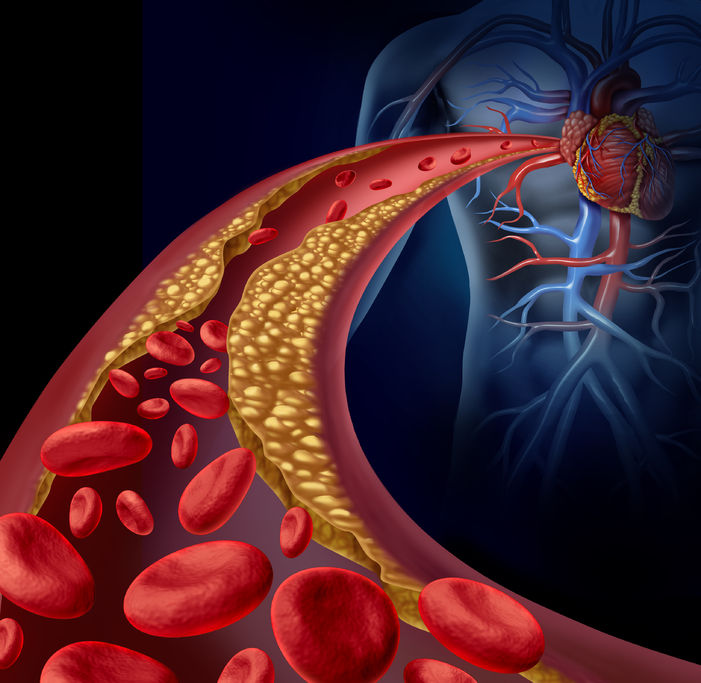There is always a lot of talk about cholesterol and most of it tends to be bad. The truth about cholesterol is that cholesterol itself is not a “bad” thing. Your body actually needs cholesterol to function properly. Cholesterol helps your body make hormones and helps with digestion. Your body makes cholesterol in the liver, and it also comes from the foods you eat.
However, cholesterol can cause problems if it builds up in the arteries, which makes the arteries more narrow and less flexible (also known as atherosclerosis). If a blood clot formed in one of the narrow, hardened arteries, it could block off the blood supply to the heart or brain and lead to a heart attack or stroke.
The medical term for “bad” cholesterol is low-density lipoprotein (LDL) cholesterol and “good” cholesterol is called high-density lipoprotein (HDL) cholesterol. High levels of LDL, or “bad” cholesterol has been linked to heart attacks and strokes, thus medications are used to lower LDL levels and reduce the likelihood one of these events may occur. In addition, if someone taking a cholesterol-lowering medication does have a heart attack or stroke, some of these medications also can help decrease the severity of the event. In addition, cholesterol medications are used after a heart attack or stroke to prevent a recurrence.
The preferred, and most common, medication class for lowering LDL cholesterol is the “statin” (or HMG-CoA reductase inhibitor). Examples of “statin” medications are atorvastatin (Lipitor®), rosuvastatin (Crestor®), simvastatin (Zocor®), and pravastatin (Pravachol®). These medicines are considered the go-to (or first-line) for lowering LDL cholesterol. When someone has had a stroke or heart attack in the past, medical guidelines recommend high-dose (or high-intensity) atorvastatin or rosuvastatin. However, sometimes people cannot tolerate taking these medicines or are on the highest tolerable dose of a statin and their ‘bad’ cholesterol is still high. In these cases, your healthcare provider might want you to try a new cholesterol lowering medication. One of the newest cholesterol lowering medications is called Leqvio (inclisiran). Leqvio was approved in December 2021 to help lower bad cholesterol in people with known heart disease in combination with diet and a statin medication. It is also approved for people who have familial hypercholesterolemia.
Leqvio (inclisiran) works in the liver to help increase the clearance LDL cholesterol from the blood. Certain proteins in the liver stop the body from clearing LDL cholesterol. Leqvio prevents these proteins from forming in the first place. If the proteins are not formed, they cannot stop your body from clearing the bad cholesterol, thus helping lower the bad cholesterol. As studied, Leqvio was found to lower LDL cholesterol in people with heart disease (already on a statin) by over 50 percent and kept it lower between doses. This was compared to people just taking a statin medication alone (they were given a placebo for Leqvio in the trial). This study did not look at whether Leqvio lowered the risk of heart attack or stroke, but as we discussed earlier, lowering LDL cholesterol is thought to help prevent these major events from occurring.
Leqvio is produced by Novartis pharmaceuticals and is given as an injection in a healthcare provider’s office. At this time, it cannot be given at home. First there is an initial injection, another one 3 months later, then once every 6 months thereafter. The most common side effects of Leqvio included injection site pain, redness, or rash, joint pain, diarrhea, urinary tract infection, shortness of breath, and/or pain in the legs or arms.
If you have heart disease or familial hypercholesterolemia, are already taking a statin medication, working on your diet and exercise, and still have trouble keeping your LDL cholesterol down, talk with your doctor about a newer cholesterol medication like Leqvio.
References:
https://www.leqvio.com/what-is-leqvio
https://www.novartis.us/sites/www.novartis.us/files/leqvio.pdf












